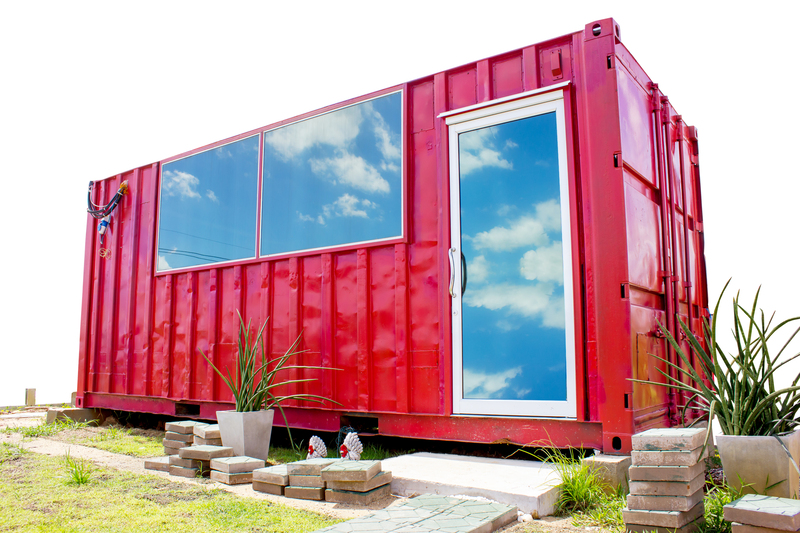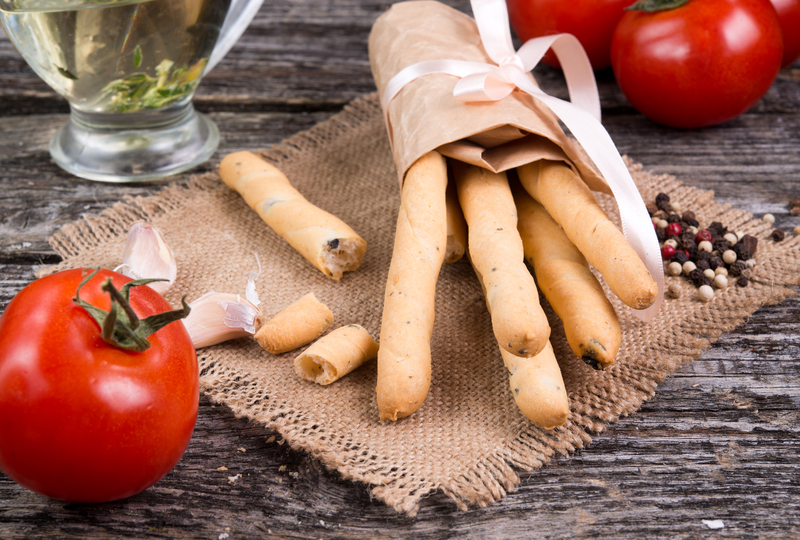Transforming Outdated Pots and Pans With Recycling Options
Have you ever wondered what to do with those old, scratched, or out-of-fashion pots and pans taking up valuable cabinet space in your kitchen? You are not alone! Every year, countless households struggle with the dilemma of discarding cookware that has outlived its usefulness. However, simply throwing these items in the trash is not eco-friendly and can contribute to growing landfill problems. Fortunately, transforming outdated pots and pans with recycling options is now easier and more creative than ever before. This guide offers a comprehensive look at the best ways to recycle, upcycle, and repurpose your cookware, helping you make sustainable choices and minimize your environmental impact.
Why Recycle Old Pots and Pans?
Outdated kitchenware, especially pots and pans, is often made of metals such as aluminum, stainless steel, and copper. These materials are valuable and highly recyclable. Recycling old pots and pans conserves natural resources, reduces greenhouse gas emissions, and prevents unnecessary landfill waste. While some nonstick coatings or handles may complicate the process, there are numerous pot and pan recycling options for virtually every type of cookware.
- Saves energy compared to manufacturing new metal products.
- Reduces landfill usage, supporting a cleaner environment.
- Promotes circular economy, keeping resources in use for as long as possible.
- Can even create opportunities for creative DIY projects or community giveaways.

Understanding the Types of Cookware Materials
Before recycling or repurposing your kitchen items, it's helpful to identify the materials they are made from. Not all recycling centers accept the same materials or combinations. Here's a closer look at common types:
Stainless Steel
Durable and rust-resistant, stainless steel pans are among the most recyclable items. These can be dropped off at most metal scrap yards or recycling centers.
Aluminum
Aluminum pots and pans are also highly recyclable and in demand. However, ensure all plastic or wooden handles are removed, as they can contaminate the recycling stream.
Copper
This valuable metal is commonly used in premium cookware. Local scrap yards usually welcome copper pots and pans, but like with aluminum, remove any non-metallic parts first.
Cast Iron
Cast iron pans are heavy and exceptionally durable. If they're no longer usable, these too can be recycled as scrap metal, but many can be seasoned and restored or creatively repurposed.
Nonstick (Teflon-coated) Cookware
These are a bit trickier. Nonstick pans are not accepted at all recycling facilities due to their coatings, but some specialty services can accept them if the coating is stripped.
Recycling Options for Outdated Pots and Pans
Options for recycling old pots and pans can be classified into three main categories: conventional recycling, creative upcycling, and responsible disposal. Let's explore each in detail.
1. Curbside Recycling Programs
Before dropping your cookware into the curbside recycling bin, verify with your local recycling center if they accept kitchen pots and pans. Many municipal programs accept household metal items, but restrictions may apply--especially for nonstick pans or cookware with non-metal parts.
- Contact your city or county recycling authority for requirements.
- Remove all plastic, rubber, or wooden handles before recycling.
- Ensure pans are clean and free of food debris to avoid contamination.
2. Scrap Metal Recycling Centers
When curbside collection isn't suitable, take your pots and pans to a scrap metal dealer or recycling facility. These centers are often better equipped to process mixed-metal items and can accept a wider variety of cookware materials.
- Check for the nearest metal scrap yards via online maps or local directories.
- Inquire about their acceptance of coated or mixed-material pans.
- Sometimes, you may receive a small payment for valuable metals like copper or aluminum.
3. Return-to-Manufacturer Programs
Some brands offer recycling or trade-in programs for their pots and pans. For example, certain companies will take back their old products when you buy new items. Check with the manufacturer or visit their website for take-back or recycling initiatives.
4. Donation and Charitable Organizations
If your cookware is still functional, consider donating it to:
- Thrift stores (Goodwill, The Salvation Army)
- Homeless shelters and food kitchens
- Community centers, schools, or charities
*Donating in good condition can extend the life of these items, supporting families or organizations in need.*
5. Mail-in Specialty Recycling
Several companies offer mail-in recycling, accepting nonstick and hard-to-recycle pots and pans. TerraCycle and similar organizations provide boxes to ship your items for responsible recycling or disposal.
Creative Upcycling Ideas for Old Pots and Pans
Recycling isn't limited to industrial processes; you can also upcycle your old cookware into unique and functional items. Here are some imaginative ways to give your outdated pots and pans new life at home:
1. DIY Planters and Garden Containers
- Old pots and pans make durable, quirky plant pots for flowers, herbs, or succulents.
- Drill drainage holes in the base.
- Paint them in bright colors or unique designs for a personal touch.
2. Bird Feeders and Bird Baths
- Turn an upside-down frying pan into a shallow bird bath.
- Use deep pots to hold seed mixes for birds and squirrels.
- Attach to trees with twine or hang from hooks.
3. Wall Art and Organizers
- Group worn pans of different sizes on a kitchen wall for rustic decor.
- Use the handles to hang utensils, towels, or keys.
- Create a chalkboard surface by painting the interior with chalkboard paint.
4. Candle Holders or Table Centerpieces
- Place candles or succulents inside an old saucepan for a cozy centerpiece.
- Decorate with stones, marbles, or shells for added aesthetic appeal.
5. Upcycled Clocks and Mirrors
- Turn the base of an old frying pan into a clock by adding a simple clock kit.
- Glue a mirror to the interior for a striking wall piece.
6. Musical Instruments and Toys
- Let children bang on saucepans with wooden spoons to create a homemade drum set.
- Combine various sizes for different tones and pitches.
Other Tips for Creative Repurposing
- Check online resources and DIY forums for more exciting upcycling projects.
- Participate in community "swap days" or freecycle groups to share ideas and materials.
Tips for Preparing Pots and Pans for Recycling
Proper preparation is essential for efficient recycling or repurposing. Before you recycle or upcycle, follow these steps:
- Remove any plastic, rubber, or wooden handles from the main metal section.
- Scrub away food residue or burnt material for cleanliness.
- Disassemble multi-part cookware whenever possible (lids, knobs, etc.).
- Check local recycling rules regarding what materials are accepted and whether composite materials are allowed.
By preparing your cookware correctly, you help ensure a streamlined recycling process and enhance the chances of your items being repurposed effectively.
Common Questions About Pots and Pans Recycling
Can nonstick pans be recycled?
Many local recycling facilities do not accept traditional nonstick pans due to their coatings. However, specialty recycling programs such as mail-in services can often process them safely. Always confirm with your recycling provider.
Is it OK to donate pots and pans with some wear and tear?
If your cookware is still functional and clean, most donation centers will accept items with minor cosmetic damage. However, avoid donating scratched Teflon-coated pans, as they may emit harmful chemicals when used.
What happens to recycled metal cookware?
Recycled pots and pans are shredded, separated by metal type, melted down, and turned into new products--from construction materials to automobile parts and even new cookware!
Does upcycling cookware require special tools or skills?
Not necessarily. Common upcycling projects can be completed with household tools such as screwdrivers, drills, or strong adhesives. However, safety is crucial when handling sharp edges or drilling into metal.
Environmental Impact of Recycling Cookware
Transforming outdated pots and pans with recycling options has a significant positive impact on the planet. By diverting these items from dumps and reintroducing them as raw materials or new objects, you help reduce:
- Resource extraction and mining for new metals
- Emissions from manufacturing and transportation
- Landfill space, which is rapidly diminishing in many areas
- The overall ecological footprint of your household
Adopting a recycle and reuse mentality sets a powerful example for children and others in your community. It encourages thoughtful consumption and a sustainable way of living.
How Manufacturers and Brands Support Sustainable Cookware Disposal
In response to consumer demand for sustainability, many manufacturers are now integrating recycling options for old cookware into their business models. Here's how some brands help:
- Take-back programs: Allow customers to return old cookware for recycling when purchasing new products.
- Designing with recyclable materials: Many brands now use single-metal construction for easier recycling.
- Informational resources: Guides and FAQs on their websites to help customers understand local recycling options for pots and pans.
Before discarding cookware, check if the brand offers recycling, repair, or trade-in services--you may save money and reduce waste at the same time.

Conclusion: Do Your Part With Pots and Pans Recycling
Whether you're clearing out the kitchen, renovating, or simply wanting to upgrade to the latest nonstick technology, it's essential to think sustainably about what happens to your old cookware. Transforming outdated pots and pans with recycling options is not just good for the environment--it's good for your home and community, too. By choosing to recycle, donate, or upcycle, you help:
- Protect the environment by conserving resources and reducing landfill waste.
- Support local charities by donating useful items.
- Unleash creativity by transforming cookware into unique, beautiful, or practical household items.
Ready to get started? Gather your outdated pots and pans and explore the many recycling and upcycling options available today. Every small action counts in creating a more sustainable, resource-efficient future!
Additional Resources
For more tips on transforming old kitchenware, visit your local recycling provider's website or get involved with environmental organizations in your area.

